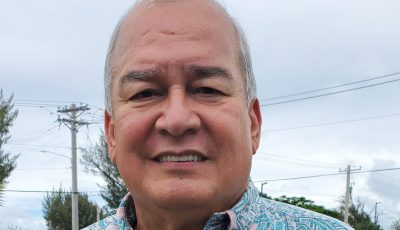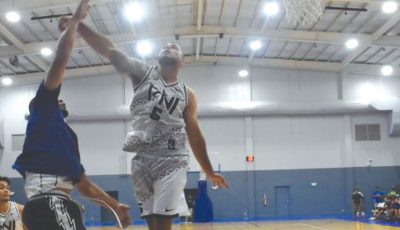IN BANKRUPTCY CASE FILED BY DISBARRED LAWYER, WIFE
Washington District judge favors businesswoman over Quichochos

Kim
The U.S. Bankruptcy Court for the Western District of Washington at Tacoma has issued a final judgment that favored businesswoman Jung Ja Kim in the bankruptcy case filed by disbarred lawyer Ramon K. Quichocho and his wife, Frances.
U.S. Bankruptcy Court Judge Brian D. Lynch agreed with Kim’s claim that certain debts arising out of a judgment Kim obtained against the Quichocho couple in the U.S. District Court for the NMI are non-dischargeable.
In the order issued on Tuesday, Lynch declared as non-dischargeable the $2,606,661 debt of the Quichocho couple to Kim.
Not dischargeable means that even if the Quichochos filed for bankruptcy, they will still owe the debt to Kim.
Lynch ruled that the Quichocho couple’s debts to Kim under the U.S. District Court for the NMI judgment relating to three Racketeer Influenced and Corrupt Organizations Act (RICO) claims in the original amount of $387,791.15 are non-dischargeable.
The judge also declared that the Quichocho couple’s debts to Kim under the same District Court judgment for conversion of the Tan Dingo LLC and Latte Stone LLC in the original amount of $2,218,870 are non-dischargeable.
Lynch, however, denied Kim’s claims that certain other damages from the District Court judgment are non-dischargeable, including for breach of fiduciary duty, legal malpractice, unpaid rent and property removal, and destruction.
Kim, through counsel Robert T. Torres, filed an adversary proceeding before the U.S. Bankruptcy Court for the Western District of Washington at Tacoma, where the Quichochos filed bankruptcy petition.
An adversary proceeding is a separate lawsuit filed within the bankruptcy case.
Kim brought the adversary proceeding to challenge the dischargeability of the Quichochos’ debts.
Lynch conducted a trial from Feb. 13 to 17, 2017 and then placed the matter under advisement.
Because of the bankruptcy filing, in May 2015, U.S. District Court for the NMI Senior Judge Alex R. Munson suspended pending court’s further notice the proceedings pertaining to Kim’s motion for order in aid of judgment in connection with a court judgment holding the Quichocho couple liable to pay Kim $2.8 million in damages.
Kim’s motion asked the court to summon the Quichocho couple and compel them to divulge information about their assets and those transferred during the course of and subsequent to the litigation of Kim’s racketeering lawsuit against them.
In his declaration filed in April 2015, Quichocho says he is now self-employed and works as a truck driver in Tacoma, Washington and that due to his financial hardship he cannot afford to make any payments to Kim.
Quichocho said he can possibly make $50 payments per month until his financial condition gets better.
Quichocho made the declaration in support of his and his wife Frances’ joint opposition to Kim’s motion for order in aid of judgment.
In Kim’s motion, Torres disclosed that Quichocho transferred 10 parcels of land on Saipan, Tinian, and Rota to his brother, Ignacio, supposedly for $30,000, while his and his wife’s jury trial were ongoing in federal court.
That racketeering lawsuit eventually ended up in March 2014 with the federal jury held the Quichocho couple liable to pay $2.4 million in damages to Kim.
The court later awarded Kim $387,791.15 for her damages, costs, and attorney’s fees. The award brings to $2,799,510.24 the total amount that the couple is liable to pay Kim.
Torres also revealed that on Aug. 27, 2014, after the entry of final judgment in Kim’s case, Quichocho quitclaimed an additional two parcels of property on Rota consisting a total of 8,077 square meters to his uncle, Joaquin Q. Atalig, for just a dollar.
The Quichochos opposed Kim’s motion. Quichocho and his counsel Michael Dotts asserted that the first transaction was for valuable consideration ($30,000) that the couple needed because Quichocho had essentially been forced to close his law firm in Saipan so he could defend Kim’s lawsuit.
Quichocho and Dotts said as there was no judgment or lien at the time of the first transaction, and as it was for value, it would be improper for the court to now set it aside.



























